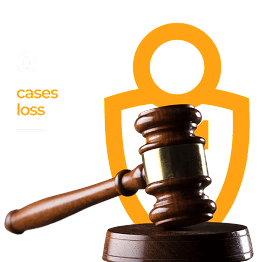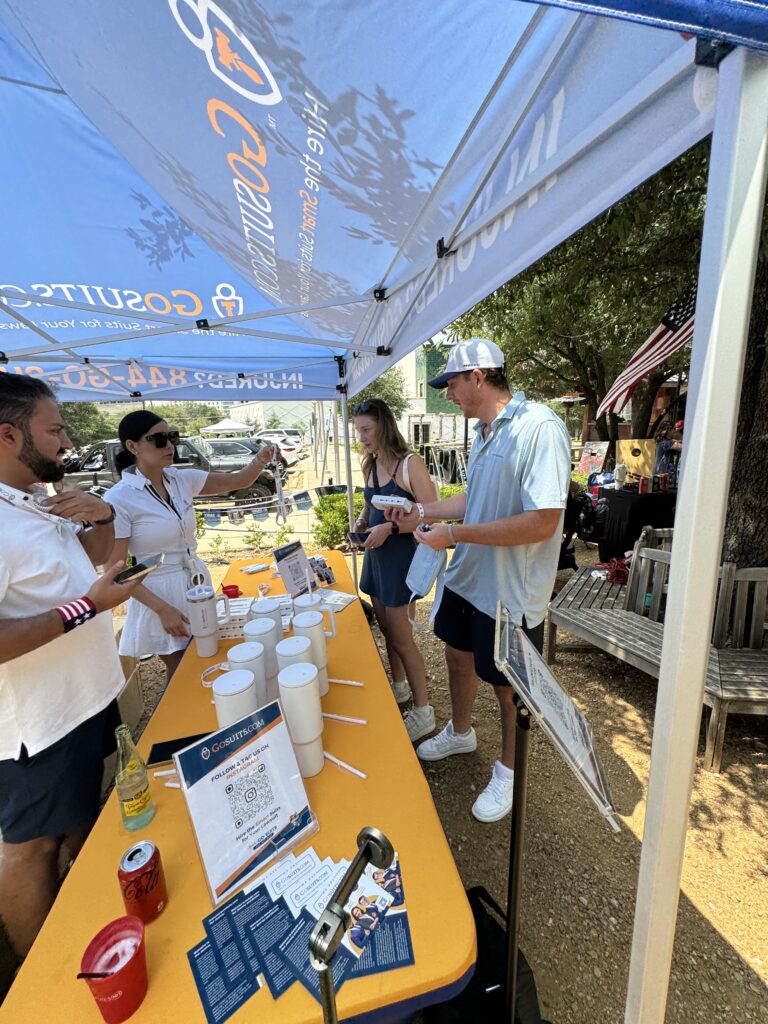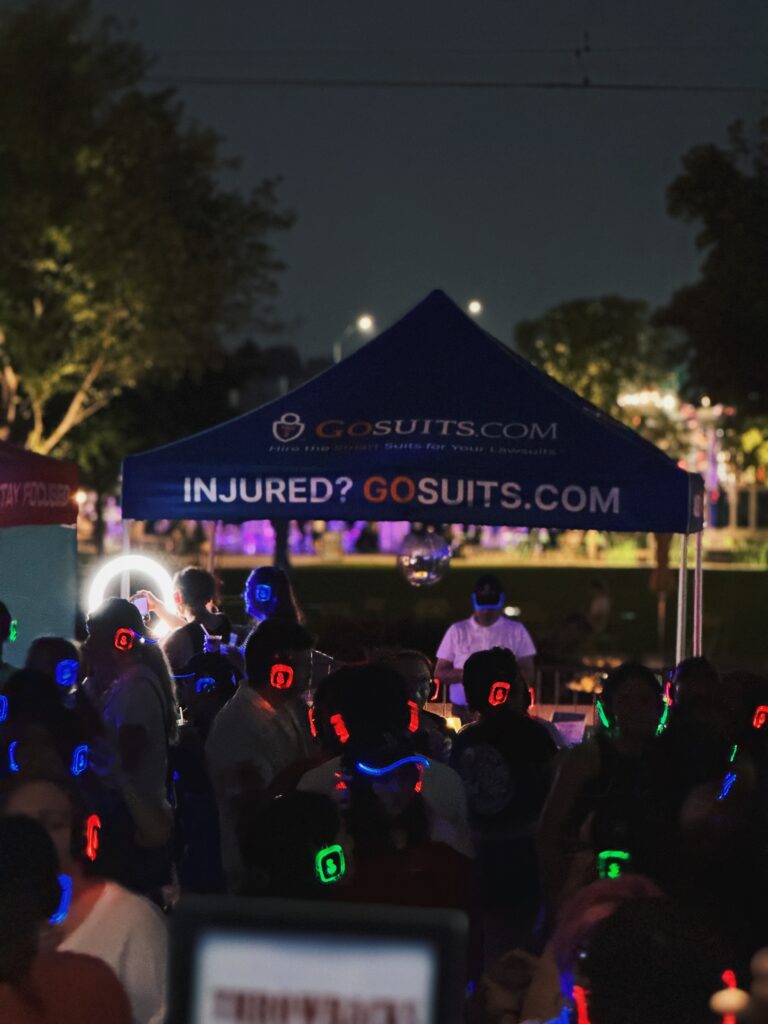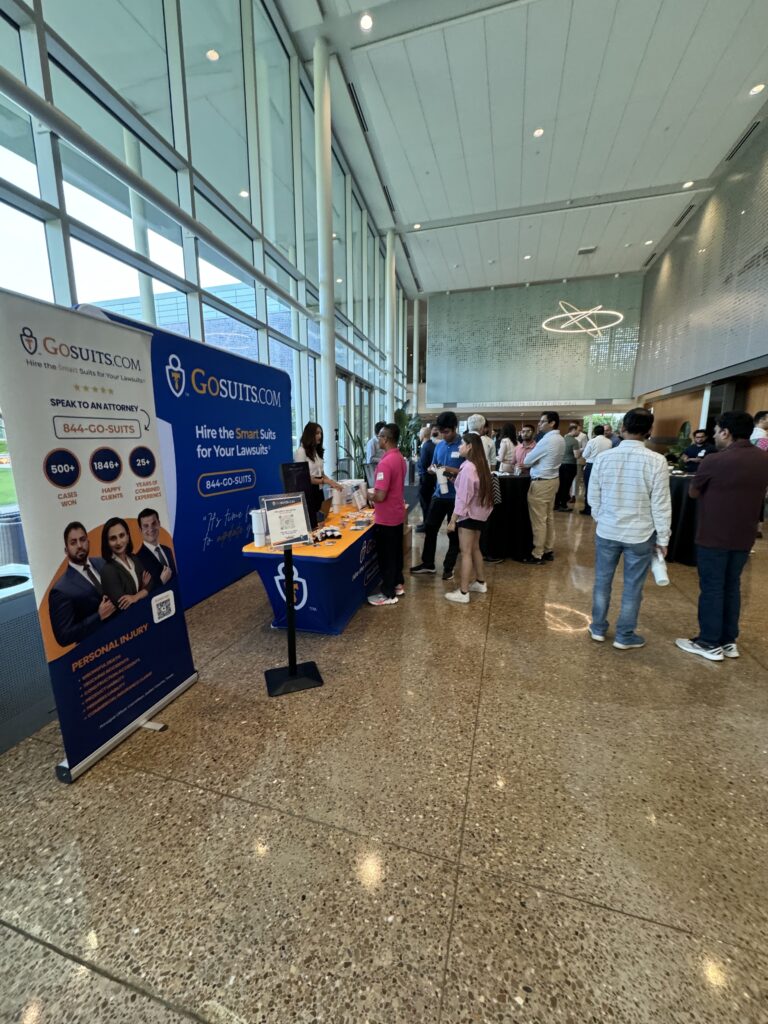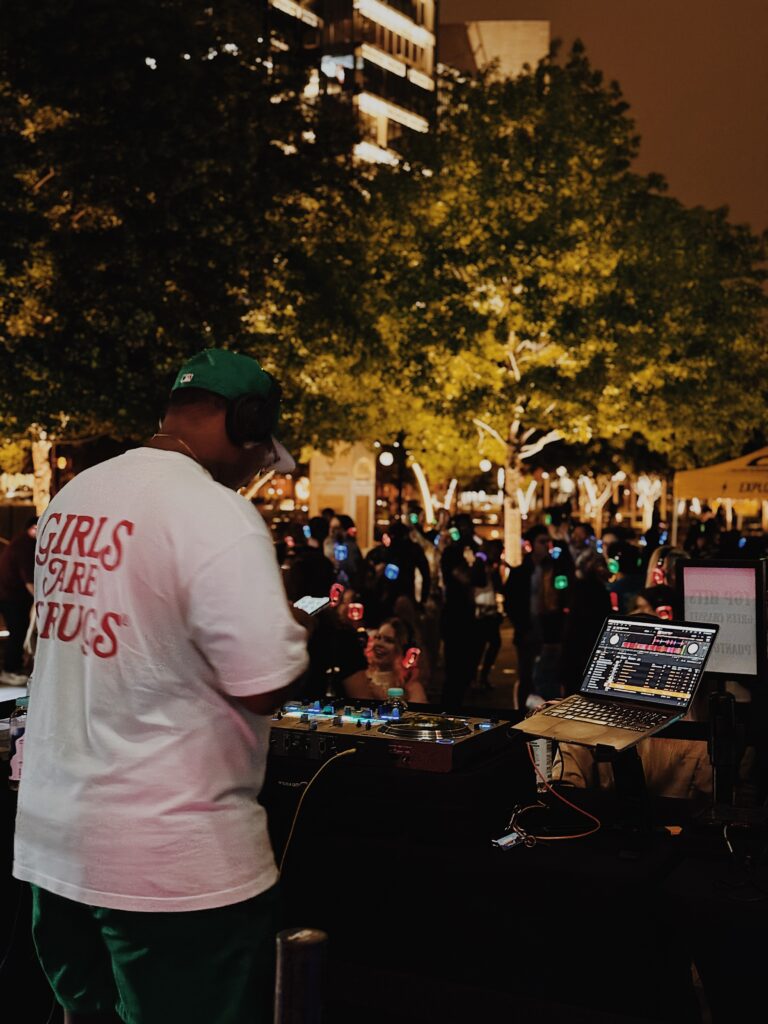As members of a society where so many lives interconnect daily, traffic accidents must be tackled swiftly and with great urgency. Unfortunately, accidents caused by drunk drivers have become far too prevalent – often leaving victims suffering and devastated beyond measure – behind statistics and headlines are stories of broken families, unfulfilled dreams, and futures irrevocably altered forever.
A drunk driving accident is a tragedy that could have been avoided with careful consideration and self-regulation. They could impact anyone at any point: friends, coworkers, family members and you yourself could all become susceptible to drunk driving at one point or another. Our drunk driving accident lawyer is here for victims every step of the way if that should ever be you or anyone you love as we ensure justice is served so they may move forward with healing and peace in mind.
Texas Drunk Driving Crashes Statistics
One person dies every 39 minutes due to drunk driving in the U.S. – that equates to approximately 37 fatalities per day – while fatal motor vehicle accidents caused by alcohol-impaired drivers increased 14% year-on-year, reaching 13,384 fatalities that may have been avoided entirely.
Between 2010 and 2019, an average of over 10,000 persons annually died due to drunk driving-related automobile accidents, with Texas leading in terms of deaths from drunk driving accidents at 13,592.
What Is DUI in Texas?
DUI commonly stands for “Driving Under the Influence”. But the Texas law uses “DWI,” or Driving While Intoxicated instead. DUI and DWI may often be used interchangeably for drunk driving crashes across states.
Texas law defines DUI as driving with an Alcohol Content of 0.08 or above, even though this statute only covers drivers aged 21 or over. Drivers under 21 could possibly face DWI charges as well. Should any amount of alcohol be detected while operating their vehicles, they could face legal consequences including fines.
As it relates to DWI charges, “intoxicated” does not refer exclusively to alcohol; rather it refers to any impairment caused by illegal drugs or even legally prescribed medication which interferes with driving safely.
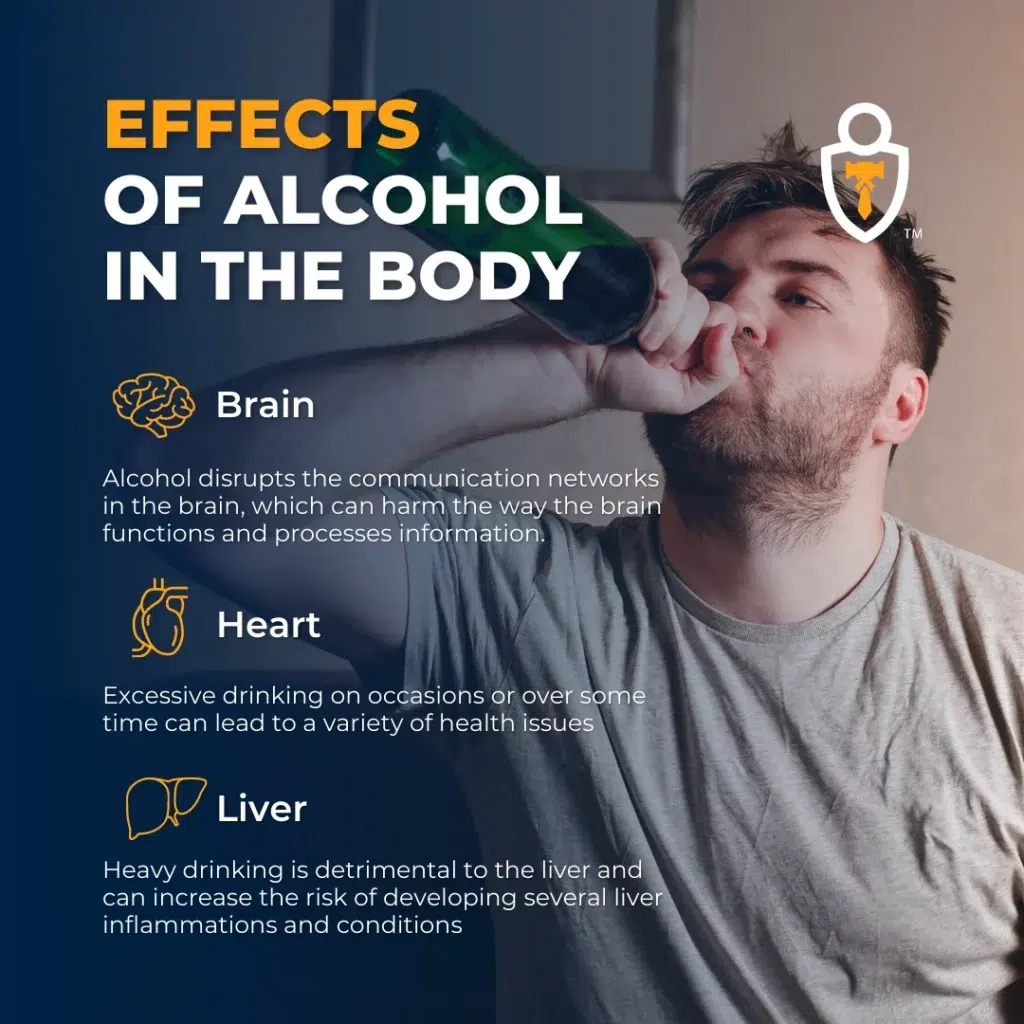
Effects of Alcohol in the Body
The National Institute on Alcohol Abuse and Alcoholism (NIAAA) reports that drinking excessive alcohol both on an occasional or continuous basis, can have serious repercussions for health.
Damages the Brain: Alcohol consumption can disrupt communication networks within the brain, hindering its operation and processing information more efficiently. As a result, mood and behavioral alterations occur, which make thinking clearly or moving in coordination more challenging.
Threats to the Heart: Consuming alcohol excessively and on a regular basis can be dangerous to the heart. Our heart being one vital organ in our body weakens with the overconsumption of alcohol. This could also lead to irregular heartbeats, stroke, and a spike in blood pressure levels.
Harm to the Liver: Binge drinking (i.e. drinking excessive alcohol in short amounts at once, also called binge drinking) has been found to lead to both fatty liver disease and, less frequently, alcoholic hepatitis. Consumption above recommended limits over years can result in serious forms of ARLD such as hepatitis and cirrhosis affecting multiple parts of the liver.
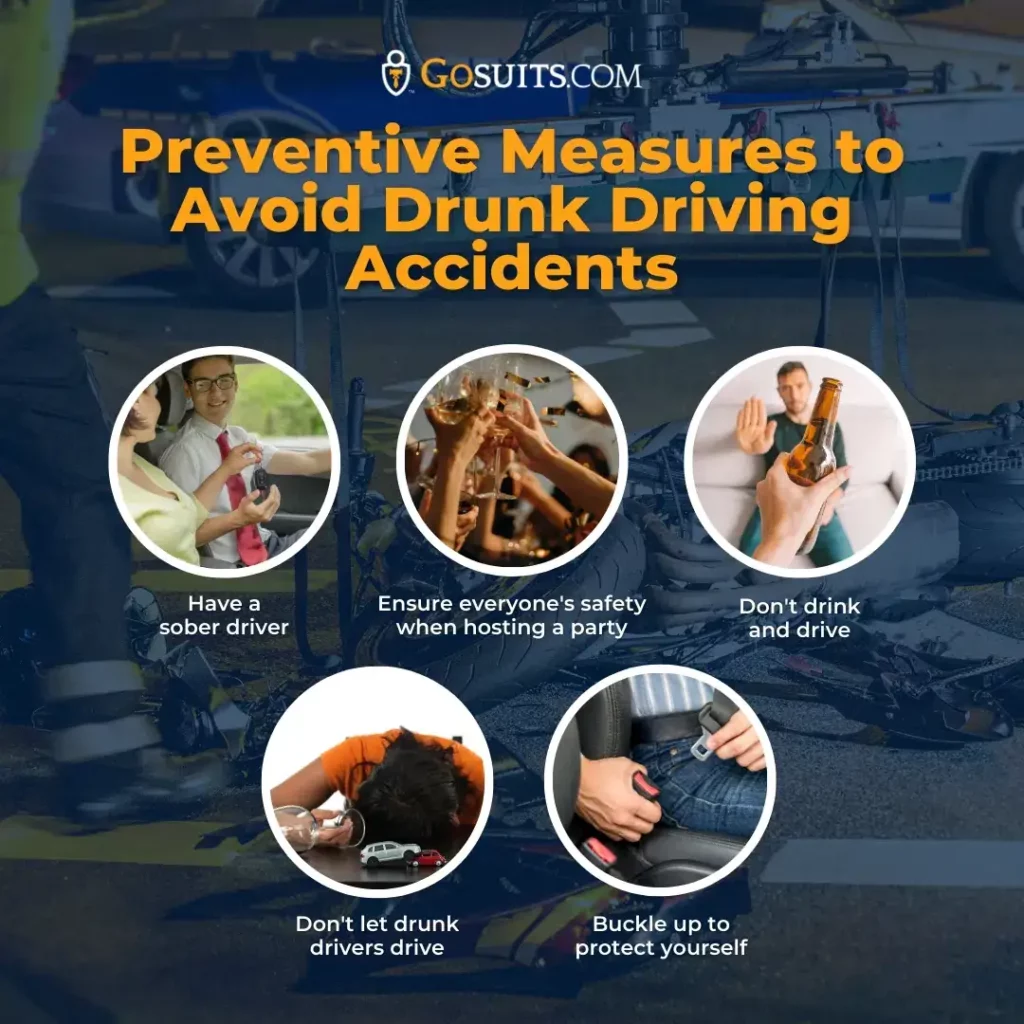
Drunk Driving Accident Lawyers’ Proven Measures to Avoid Drunk Driving Accidents
- Before you head out to the party, make sure you have a way to get home safely and select a buddy who won’t be drinking to be your sober driver.
- Do not give someone, who has been drinking, permission to get behind the wheel. Take the keys from them and assist them in making arrangements for a sober trip home.
- Do not go behind the wheel if you have been drinking for whatever reason. Make a call to a cab, ride-hailing service, or a friend who is not impaired.
- Ensure every visitor leaves the party with a sober driver if you are holding a party where alcoholic beverages will be provided.
- Always make sure you’re buckled up in your seat since this is your most significant line of defense against drunk drivers.
How Does a Law Enforcement Officer Determine Drunk Driving?
Law enforcement officers use different methods and signs to figure out if a driver might be driving a car while high on drugs or alcohol. There are both personal observations and objective tests used in these methods.
Observations and Behavior: At first, an officer might observe a car moving strangely – whether this involves drifting between lanes, weaving among them, or changing speed unpredictably – before initiating a traffic stop. Once there, during the discussion with the driver, they may look out for signs of drunkenness such as slurred speech, bloodshot eyes, or any indications that alcohol has been consumed. These behaviors might signal potential signs that may indicate potential impairment or being lost.
Field Sobriety Tests (FSTs): Once police make a traffic stop, officers typically give drivers routine field sobriety tests to assess how well they move and think. Such assessments include tests such as Horizontal Gaze Nystagmus (HGN), in which officers check uncontrollable eye movements; walk-and-turn tests ask drivers to walk straight ahead in a straight line heel-to-toe. One Leg stand tests require them to stand on one leg for a certain amounts of time – these assessments allow them to determine whether drinking or taking drugs have altered an individual’s agility, balance, attention span or performance capabilities.
Breathalyzer and Blood Tests: When investigating suspected drunk driving cases, officers can request breathalyzer and blood tests on drivers as part of a DWI arrest case. By testing breath samples to measure how much alcohol may be in their system, blood testing measures these substances directly. Both tests can provide sufficient proof that an impaired driving situation exists in order to arrest for driving while under the influence (DWI).
How To Report A Drunk Driver in Texas?
Calling 911 when witnessing dangerous driving behavior may come naturally. However, only in extreme emergencies should this step be taken. An impaired driver poses an obvious threat, yet does not constitute an urgent situation requiring immediate police attention.
You may call 1-800-525-5555, a toll-free hotline in Texas, to report intoxicated drivers. Alternatively, you may contact local Texas law enforcement agencies directly. You may even use an app created by the police force to report crimes and provide information about dangerous drivers.
Consequences and Liability in Drunk Driving Accidents
Who bears responsibility when lives are lost due to drunk driving tragedies that could have been avoided?
Drunk Driver Liability: When an accident is caused by a drunk driver, criminal charges and civil lawsuits may follow. But is it always the intoxicated driver’s responsibility when they cause an accident? Surprisingly, “No, not always” is the correct response. The drunk driving accident victim must establish the following in order to collect damages: Damages were sustained by the plaintiff because the defendant owed them a duty of care and then broke that obligation in some way. Drunk driving is a violation of the defendant’s obligation to others on the road.
Dram Shop Liability: Can a bar be for a drunk driver who leaves their establishment? Yes, but only when specific conditions are met. A bar that serves an obviously drunk customer may be held liable for any harm the customer does. Similarly, any business selling alcoholic beverages to the general public is fair game such as bars, liquor shops, eateries, arenas, movie theaters, and corner stores.
Social Host Liability: The host must have reasonably suspected that the visitor was under the influence of alcohol, just as they would have had to do in a commercial establishment. Some examples of “social hosts” are: parties during graduation, in an office, a wedding, baby shower or other kinds of social gathering. To be held responsible, the host must have had actual or constructive knowledge that the intoxicated visitor was operating a motor vehicle either to go to the party or from it.
Legal Options for Drunk Driving Accident Victims
Insurance Claims: After being involved in an accident, the first step should often be filing an insurance claim with the at-fault driver’s insurer to seek compensation for property damage, medical costs and lost wages caused by them. They may offer settlement options that you can negotiate or seek legal representation to ensure fair compensation.
Civil Lawsuits: When insurance settlements do not adequately compensate you or if a driver doesn’t carry insurance, filing a personal injury suit against him/her could help secure financial recompense for medical expenses, pain & suffering damages, lost wages/disability compensation. Consulting with Texas drunk driving accident attorneys to assess and navigate this legal process will prove essential in finding justice.
Dram Shop Lawsuits: Under certain conditions, filing a dram shop lawsuit could be your only recourse to seek justice against establishments such as bars, restaurants, and liquor stores that illegally served alcohol to someone already drunk who later caused an accident. Dram shop laws vary between states so it’s wise to take advantage of the free case evaluation with a drunk driving accident attorney to see if this path of legal recourse applies in your situation.
Criminal Proceedings: If necessary, the state may also pursue criminal charges against drunk drivers. While criminal trials seek justice against their offenders and can provide closure to their victims, it’s important to remember that criminal lawsuits follow different processes than civil suits and need their own legal procedures in order to proceed effectively.
Victim Compensation Programs: Some states offer victim compensation programs that offer financial support to victims of crimes like drunk driving accidents. Such assistance could cover medical bills, counseling sessions and lost wages caused by such events; so make sure you research whether any are available in your jurisdiction.
What is the penalty for drunk driving in Texas?
Texas laws for driving under the influence vary according to various factors, including blood alcohol content (BAC), previous arrests and details of each offense. Here is an outline of Texas DUI penalties:
First Offense (Class B Misdemeanor):
Up to $2,000 in fines
Between 72-181 Days in Jail Driver License Suspension 90-14 months
Additionally: Participation in an Alcohol Awareness Education program should also be mandatory
Second Offense (Class A Misdemeanor):
Maximum fine of $4,000
30 to 1 Year in Jail 180 Days to two year suspension of driver License
any criminal must attend an alcohol education program as well as install an IID on his/her car
Third offense or more (third-degree felony):
fine of up to $10,000 and two to 10 years imprisonment, plus license suspension from 180 days up to two years and additional conditions such as participation in an alcohol education program and installation of an IID on their car.
Note that these fines are not final. If your blood alcohol concentration (BAC) was over the legal limit, children were present or you caused major bodily harm or death while driving drunk, charges and punishments can escalate accordingly, including higher fines, longer license bans and/or jail terms.
What Should I Do After an Accident with a Drunk Driver?
Assure Your Safety: Once it is safe, move to an area away from traffic to reduce further injury. Call emergency services as soon as necessary if anyone involved needs urgent medical treatment.
Report the Accident to Authorities: Report your car accident immediately to police and give accurate, detailed accounts about what transpired, while informing them if you suspect another driver might have been impaired by alcohol or drugs. They will respond swiftly by arriving on scene to assess, document and document sobriety tests of both drivers.
Gather Information: At the scene of an accident involving drunk driving, gather key details including driver information (name, contact info and license plate of drunk driver, insurance details as well as any witness contact info), vehicle damage photos as well as injuries sustained to you and/or others at scene (car damages and any visible signs of injuries sustained by party involved etc). Take photographs as well.
Assert Medical Attention: Even if you believe you’ve sustained only minor injuries in an accident, seeking medical advice afterward is always a wise precaution. Injuries may not immediately appear visible, and seeking prompt evaluation can ensure proper documentation of any potential insurance or legal claims that might come your way.
Consult an Attorney: Consulting with an experienced personal injury attorney with knowledge in drunk driving accidents is highly advised, to review your case, protect your rights, assist through legal procedures and assist in recovering compensation for damages and injuries sustained as a result of driving drunk.
Document Your Damages: Document all expenses and losses related to an accident, such as medical bills, vehicle repair costs, lost wages and any other associated losses or damages you incur as this documentation will become essential when seeking compensation from third-parties for compensation claims.
Cooperate With Authorities and Legal Proceedings: Assist law enforcement with their investigation and provide them any additional information or evidence they require. Cooperate with your attorney throughout any legal proceedings such as insurance negotiations or possible lawsuits that arise.
When Should I Hire a DUI Accident Lawyer in Texas?
Under Texas state law, victims have two years from the date of injury to submit a claim for compensation against drivers involved in DUI accidents in their claim for damages. Because this deadline can quickly pass you by it is vital that you reach out immediately after experiencing injuries to seek advice and hire an attorney; sooner rather than later will put you on track towards recovery and get you moving forward faster.
What Is the Average Settlement for a Drunk Driving Accident in Texas?
Calculating an expected payout in drunk driving-related personal injury suits in Texas is virtually impossible, although an attorney can assist in helping to assess what your claim might be worth and can offer a ballpark figure of potential compensation in such a claim. Factors which influence settlement amounts in drunk driving accident cases include severity of injuries sustained; economic damages sustained and noneconomic damages sustained as well as liability/negligence factors.
Given that no two incidents are identical, it can be extremely challenging to predict an average settlement amount for drunk driving accidents. When you reach out to experienced lawyers like ours for representation in these types of claims, we will review all details at no cost and give an approximate idea of your possible compensation amount for drunk driving accidents.









